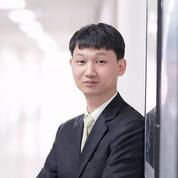Nature Communications: Tetradiketone macrocycle
- Apr 22, 2021
- 1 min read
Our work with the group of Prof. Jang Wook Choi (Seoul National University) on a tetradiketone macrocycle capable of divalent aluminium ion storage has been published in Nature Communications.
Contrary to early motivation, the majority of aluminium ion batteries developed to date do not utilise multivalent ion storage; rather, they rely on monovalent complex ions for their main redox reaction. In this study, we report a tetradiketone macrocycle as an aluminium ion battery cathode material that overcomes this limitation and reversibly reacts with divalent (AlCl2+) ions. The macrocycle consequently achieves a high specific capacity of 350 mAh g−1 along with a lifetime of 8000 cycles. The preferred storage of divalent ions over their competing monovalent counterparts can be explained by the relatively unstable discharge state when using monovalent ions.
This study opens an avenue to realise truly multivalent aluminium ion batteries based on organic active materials, by tuning the relative stability of discharged states with carrier ions of different valence states.

D.-J. Yoo, M. Heeney, F. Glöcklhofer,* J. W. Choi,* Tetradiketone macrocycle for divalent aluminium ion batteries, Nat. Commun. 2021, 12, 2386. [Link, open access]



